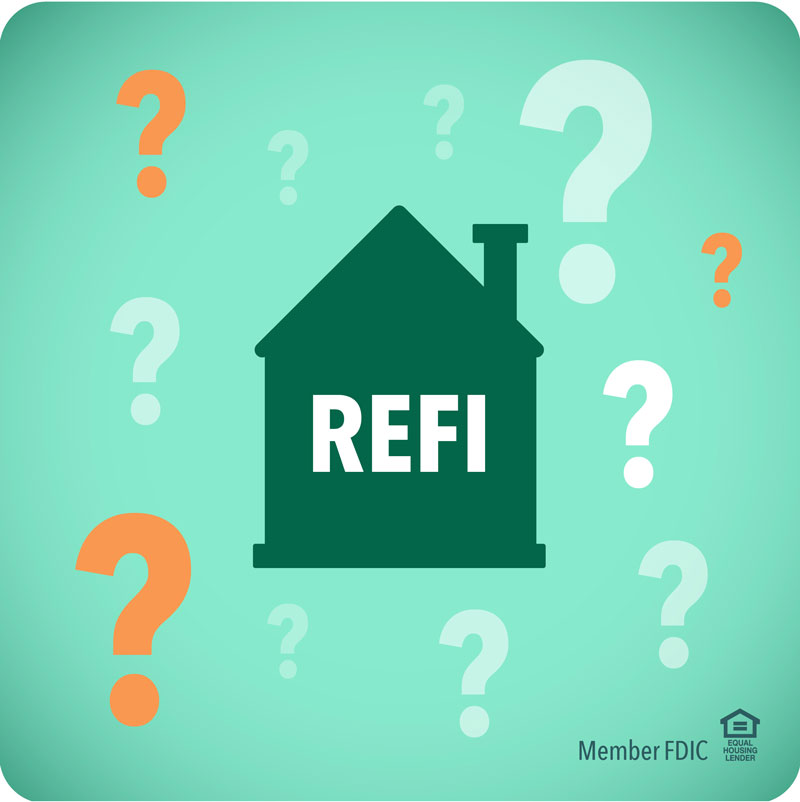FDIC-Insured - Backed by the full faith and credit of the U.S. Government
-
-
-
FNBO
MortgageJun 11 2019
-

To Refinance, or Not to Refinance?
This is a question that should be carefully measured
For homeowners paying off their first mortgage, the idea of refinancing might be unfamiliar. You might be wondering: What exactly does refinance mean for a mortgage holder? How does it work? What are the pros and cons? When should I consider refinancing? When should I not consider it?
First, what is it?
Refinancing a home loan is the process where a homeowner takes out a new mortgage on their home. In the process, the first mortgage is first paid off, and then a new mortgage is created.
Why would you refinance?
There are a variety of reasons to “start over” with a new mortgage, including reduced monthly payments, lower interest rates, accessing the cash-out value of your home for large purchases, or perhaps a change in mortgage companies.
When is a good time to do this?
The best time, and the time when many people refinance, is when they have equity in their home, which is the difference between the amount owed to the mortgage company and the current value of the home.
Digging into it
Let’s dig deeper into some of the considerations when it comes to refinancing:
- Lower interest rate – A lower interest rate can be a significant game-changer when it comes to your monthly payments and could save you hundreds or thousands of dollars a year. For example:
- Say you have a $150,000 home mortgage at 4.5% interest rate. The principal and interest payment would be $760 per month for a 30-year fixed mortgage. If your interest rate was 9%, the payment would be $1,207 per month. That’s a major difference. As you can see, reducing your interest rate not only helps you save money, it also increases the rate at which you build equity in your home, and it can substantially decrease the size of your monthly payment.
- Cash out a portion of the home's equity – Over time, homes often increase in value. This increase can translate into a great resource of cash that you can use for home improvements, college tuition, paying off credit cards, etc.
- Get rid of private mortgage insurance (PMI) – If you bought your home with zero or a low down payment (less than 20%, for example) you likely had to take out PMI, which is intended to protect the lender if you default on the mortgage. As the amount you owe on your mortgage goes down, and the value of the home increases, you may be able to cancel your PMI with a mortgage refinance loan. You may also be able to get rid of your PMI sooner, as you can terminate PMI in other ways. Speak with your lender to determine the best way to cancel your PMI.
So, why not refinance your mortgage?
One reason might be if you plan to sell your home in the next couple of years. Refinancing can cost 2-3% of the loan's principal – like it did when you took out your original mortgage – and can require an appraisal fee, title search and application fees, attorney fees, etc.
You should consider whether or not you will be able to recoup that in before you sell the home. If you plan on selling your home in two years, and it will take you three years to recoup the cost of those fees, it might not be worth refinancing. On the other hand, if you are planning on staying in the home for several more years, it might be worth the refinance fees.
Another thing to consider if you are refinancing because you want to consolidate your credit card debt: Sure, you might be paying off your credit card debt, but you are essentially transferring unsecured debt into debt that is backed by your home. If you are unable to make credit card payments, there will be negative consequences, but if you are unable to make your home payments, you may lose your house. It’s something to think about.
A final thought
For many people, a mortgage refinance is a great option, and the pros far outweigh any cons. However, there are things to consider – fees, how long you plan to live in the home, for example – before making such a major (re)investment.
Got Questions? Stop by your local First National Bank branch today and visit with a mortgage loan expert.
The articles in this blog are for informational purposes only and not intended to provide specific advice or recommendations. When making decisions about your financial situation, consult a financial professional for advice. Articles are not regularly updated, and information may become outdated.